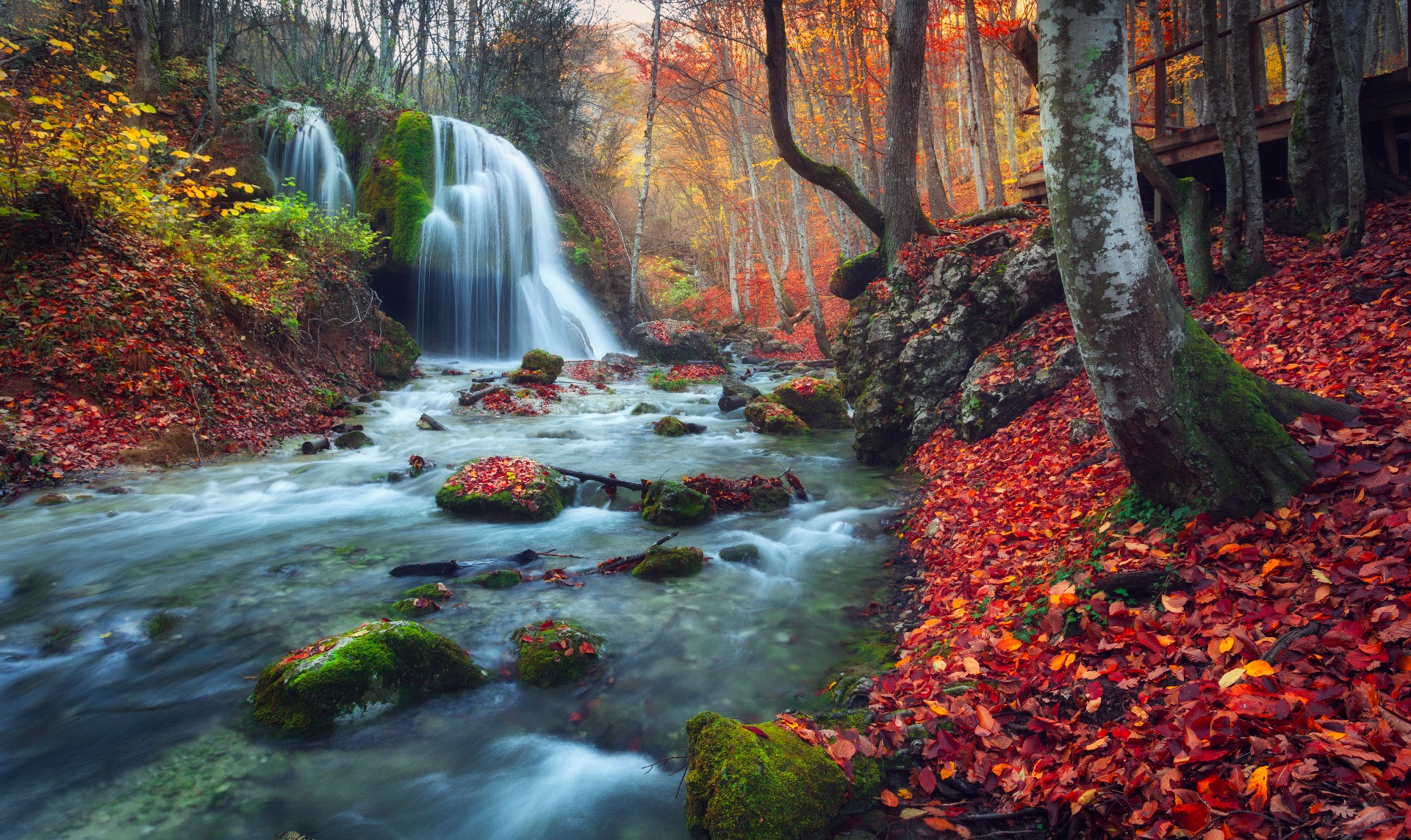
86-91 Kṛṣṇa’s Exchanges with the gopīs
Ṭīkā: The previous two ślokas describe the first stages of Kṛṣṇa's meeting with his parents. But generally (in the usual sequence of events) Kṛṣṇa first stops in Yāvaṭa to share loving glances with Rādhā and the other gopīs. In Kṛṣṇa-bhāvanāmṛta, Śrīla Chakravartīpāda presents another day:
"As Kṛṣṇa approaches Yāvaṭa, the Sakhīs of various Yūtheśvarīs begin exclaiming: "Hey Bhadre! Don't delay!" "Hey Candravali! Stop lamenting, come see Kṛṣṇa!" "Dhanye! Don't be morose!" "Hey Kamale! Come quickly!" "Hey Pali! Why grieve? Hurry up, let's revive ourselves with Kṛṣṇa's saundaryāmṛta!"
Balarāma, Śrīdāma and the other boys then go ahead of Kṛṣṇa to Nandīśvara with the cows, that are calling their calves with their mooing and that run ahead to meet them. The boys (then quickly run after them to keep them together and) thus enter Nandīśvara to lift their mothers out of the ocean of their sorrow.
86-88 Meanwhile, the red pomegranate-teeth of the candra vadanā Vrāja-lalanās glisten with their smiles! And as the gopīs hear the muralī dhvani, their garments loosen, their unhappiness leaves and their voices falter as they quickly scurry to the roadside while conversing about Govinda!
With the dazzling sunrise of Kṛṣṇa's advent—the Vrāja nārīs' nayana-utpala (lotus eyes) become jubilant, the waterlilies of their soft smiles blossom, the moonstones of their erotic desires melt, and their scorching viraha-heat becomes cooled!
But on the other hand, the Kṛṣṇa-candrodaya (Krishna's apearace like rising moon – candra udaya) causes the Vrāja yuvatīs' lotus faces to blossom, the torturing owls of their separation to disappear, and the cakravakas of their bodies to unite with their prāṇa pati (husband)!
Ṭīkā: Although Kṛṣṇa is like the sun, his wonderful activities induce the effects of the moonrise too. The gopīs don't consider Kṛṣṇa's advent like the scorching sunshine at all—rather his darśana soothes their troubled hearts like the moonbeams.
Nevertheless, as Kṛṣṇa-Candra is transcendental to the moon of our world, his presence causes the astonishing reverse effects of the moon's qualities. Hence the lotuses bloom, the owls hide and the chakravakas unite with their mates—even though these symptoms usally result from the sunrise.
89 The Vrāja kiśorīs' bee-eyes are thirsty for Kṛṣṇa's anga kānti madhu. Thus, soaring against the unyielding winds of their shyness, they forcefully land upon Kṛṣṇa's mukha kamālā.
Ṭīkā: Shyness is a young girl's wealth. But today the amazing luster of Kṛṣṇa's lotus face makes the Vrāja sundaīs go mad, so their minds are pulled in two directions. The wishful winds of their lajjā (shyness), mana (pride) and gaurava (esteem) flick their restless, bee-like eyes far away from the Kṛṣṇa-kamālā.
But with their forceful Kṛṣṇa-anurāga, the thirsty bees don't give
in—they overpower the unfavorable winds to land upon Kṛṣṇa's mukhāravinda! This
scene invokes meditation.
Krisna-bhāvanamrta depicts this moment with a different metaphor:
When Kṛṣṇa slowly strolls through Yāvaṭa, his dizzy, drunken glances eagerly turn to the slim-waisted Vrāja taruṇīs. And like his wanton eyes—his long flower-garland is also veering! Thus, a ball game begins. The flower ball of Kṛṣṇa's mind, and those of the Vrāja-rāmas, toss back and forth in the exchange of lurking glances! And as the tug-of-war ensues, the flower balls are drawn and caught by both parties. Hence Kṛṣṇa and the gopīs' bodies are rejuvenated within a navina lavanya sāgara (ocean of radiant glamour).
Kṛṣṇahnika-kaumudī adds: As the anurāginī gopīs feast on Kṛṣṇa's moon-face, their lotus eyes become relieved—as though they have taken a delicious parana (break fast) after many days of fasting. Then that mahā guna nidhi subjugating Rasika Nāgara glance upon each gopī in such a way that everyone believes— 'Surely Kṛṣṇa will be waiting for me just outside of my home tonight!"
The gopīs viewing Kṛṣṇa from the jeweled candra-śālā eagerly share śṛṅgāra rasamaya glances with him! Thus, their bee-eyes take shelter of the Reservoir of all beauty—Śrī Kṛṣṇa's mukha padma! But suddenly the gopīs shy glances smother Kṛṣṇa's lovely face like a profuse shower of blue lotus petals! Aho! Their faces light up their prema! This fascination is relished by three parties—the gopīs, Kṛṣṇa and especially Madana (God of Love)!
Then the Vrāja kiśorīs' mad hummingbird-eyes trun into fine-pointed arrows—and they are lethal, hence, as both parties release their arrow-glances—they meet head-on (in mid-air) and fracture! It is amazing, however, that although they are being smashed to pieces, still the arrow-tips separate to penetrate their heart-targets.
Aho! The movements of Kṛṣṇa and the gopīs are like śuddha prema (that ever increases in mādhuri! Although the gopīs' eyes momentarily detract in fear of their family members, their thirsty anurāga for Kṛṣṇa's darśana continues unabated!
90 As the gopīs peek through the flower vines, Kṛṣṇa's bee-eyes flout within the contending breeze of shyness; but the bees succeed and drink the luster-pollen from the gopīs' blooming lotus-faces!
Ṭīkā: Shyness is natural in the loving encounters between young boys and young girls. So as the gopīs' shyness enhances their prema—so does Kṛṣṇa's shyness enhance his charm. But Kṛṣṇa's bee-eyes don't have to struggle like the gopīs do; for his shyness is like a gentle breeze, whereas theirs blows in heavy gusts.
91 The gopīs are enthralled seeing Kṛṣṇa's mukharavinda, their bodies are enlivened by feeling the wind that has touched him, their nostrils become ecstatic by smelling his anga parimālā (bodily fragrance), and their ears are delighted by the flute-song that delivers his adhara sudhā-rasa (the nectar of His lips) thus the gopīs' five senses are nourished with joy!
